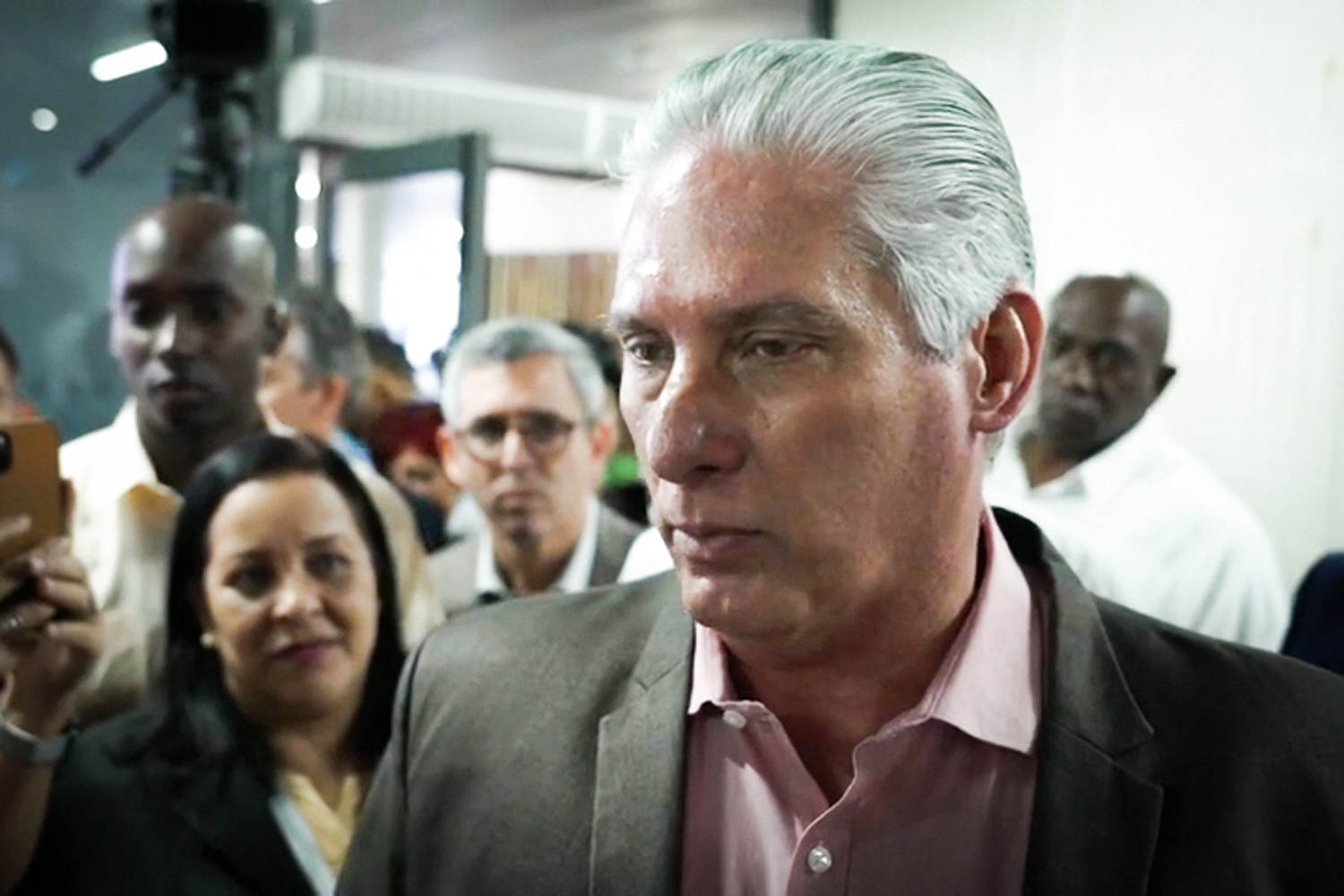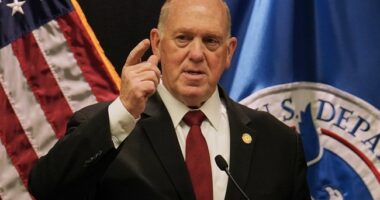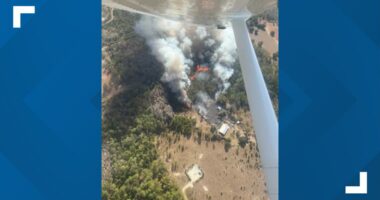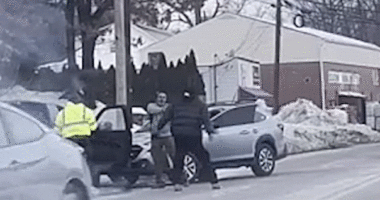Share this @internewscast.com

HAVANA — Cuban President Miguel Díaz-Canel blasted the U.S. as “interventionist” and for having “contempt” toward the Cuban people and the Cuban revolution in an interview with NBC News in Havana on Tuesday.
Hundreds of Cubans have been taking to the streets to protest shortages of food and power. The government accused the U.S. on Monday of firing up the protesters; in response, the U.S. State Department called the accusations “absurd.”
Responding to the State Department’s comments, Díaz-Canel said: “They’re always looking for justifications and turning things around. The most absurd thing is that they have applied a criminal blockade against us for more than 65 years. That is the absurdity.”
Díaz-Canel seldom does interviews, especially with U.S. media outlets, but he spoke with NBC News during Havana’s International Informatics Fair, focused on digital technology.
Díaz-Canel said the “absurdity” of the “blockade” is what has provoked the protests.
“We are free, sovereign and independent, and we are going to continue building our revolution, despite the tightening of the blockade, despite the fact that we have been included on a spurious list that can only be invented by a government as genocidal and as hegemonic as the government of the United States,” Díaz-Canel said, referring to the U.S.’s including Cuba as one of four countries it considers to be state sponsors of terrorism, along with North Korea, Iran and Syria.
Protests have broken out in different parts of the island since Sunday, the largest ones in the second-largest city, Santiago in the east. Santiago is known as the birthplace of the Cuban revolution, and it is where Fidel Castro’s ashes were laid to rest in 2016.
People chanted “electricity” and “food” and in some cases called for “freedom” in videos that were widely shared on social media.
Cubans have been enduring long power cuts, sometimes extending up to 18 hours, in some parts of the country. Shortages of food and medicine, as well as rising inflation, have made life more difficult for the vast majority of the population.
In response to Díaz-Canel’s remarks Tuesday, the State Department said in an e-mailed statement that “the U.S. stands with the Cuban people and continues to support their demands for human rights, freedom, prosperity and a future of greater dignity.”
“U.S. policy on Cuba promotes accountability for human rights abuses and seeks to support the Cuban people,” an official said.
Cuba’s communist-run government had recently announced unpopular austerity measures and hiked the price of gasoline, also in short supply, by 500%.
The government recently asked the World Food Program for help so it could continue to supply subsidized powdered milk for children.
Asked about the protests, Díaz-Canel said they were relatively peaceful but were made to look like “serious events.”
He said more “severe” protests take place around the world, including in the U.S., that are “violently repressed.”
“Those in Cuba make headlines. Why? Because there is an entire perversity when it comes to dealing with the Cuban problem,” he said.
Cuba has been under tough U.S. economic sanctions for over 60 years. The embargo was initially a response to Castro’s confiscation of U.S. businesses and properties after the 1959 revolution. When it was fully implemented in 1962, there was no trade, but through the years the U.S. has modified the embargo with laws that have made it complex. And while U.S. companies can export food and medicine to Cuba by requesting special licenses from the U.S. government, the embargo makes it more difficult.
While many economists agree that the embargo has been damaging to Cuba’s economy, they also point to Cuba’s Soviet-style, centralized economic model.
In response to Díaz-Canel’s comments, the U.S. official said that only Congress can lift the embargo and that last year, the U.S. exported nearly $336 million in agricultural goods and authorized $100 billion more in humanitarian exports or donations, “demonstrating the goodwill of many Americans who want to help the Cuban people.”
“U.S. sanctions have an impact, but Cuba’s mismanagement of its most productive sectors is a primary driver of Cuba’s current economic crisis,” the U.S. official said.
Díaz-Canel, asked about speculation that the protests could bring the collapse of the revolution, said: “Let them come and prove it. Let them try to bring us down. They’ll see what will happen to them.
“The revolution is very solid, and the Cuban people are very aware of what it means to lose the revolution,” he said.














